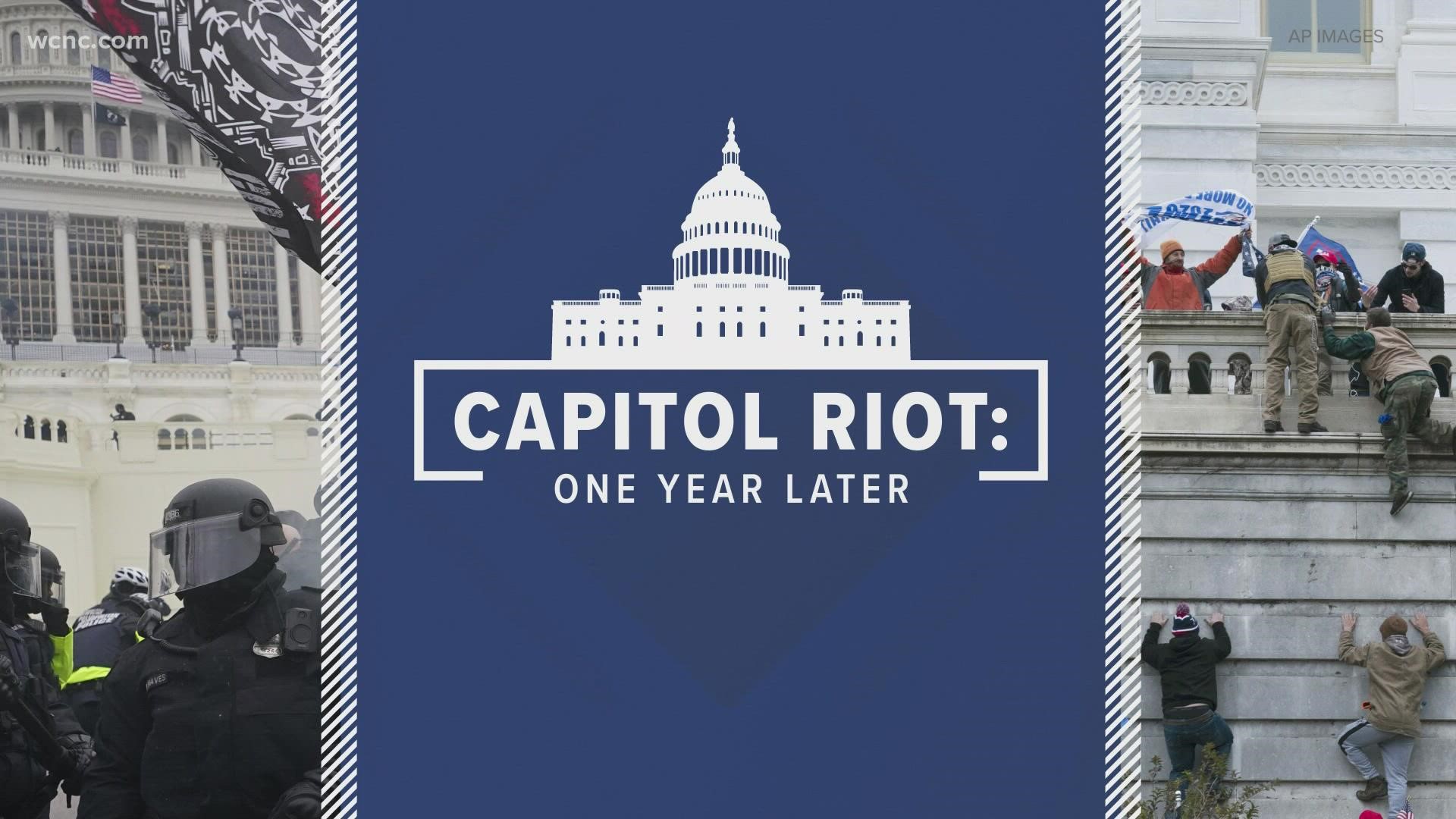Holding them accountable: 27 North and South Carolina residents charged so far in connection to Jan. 6 Capitol attack
More than 600 Americans have been arrested for their alleged involvement in the attack on the Capitol. Several are from North and South Carolina.
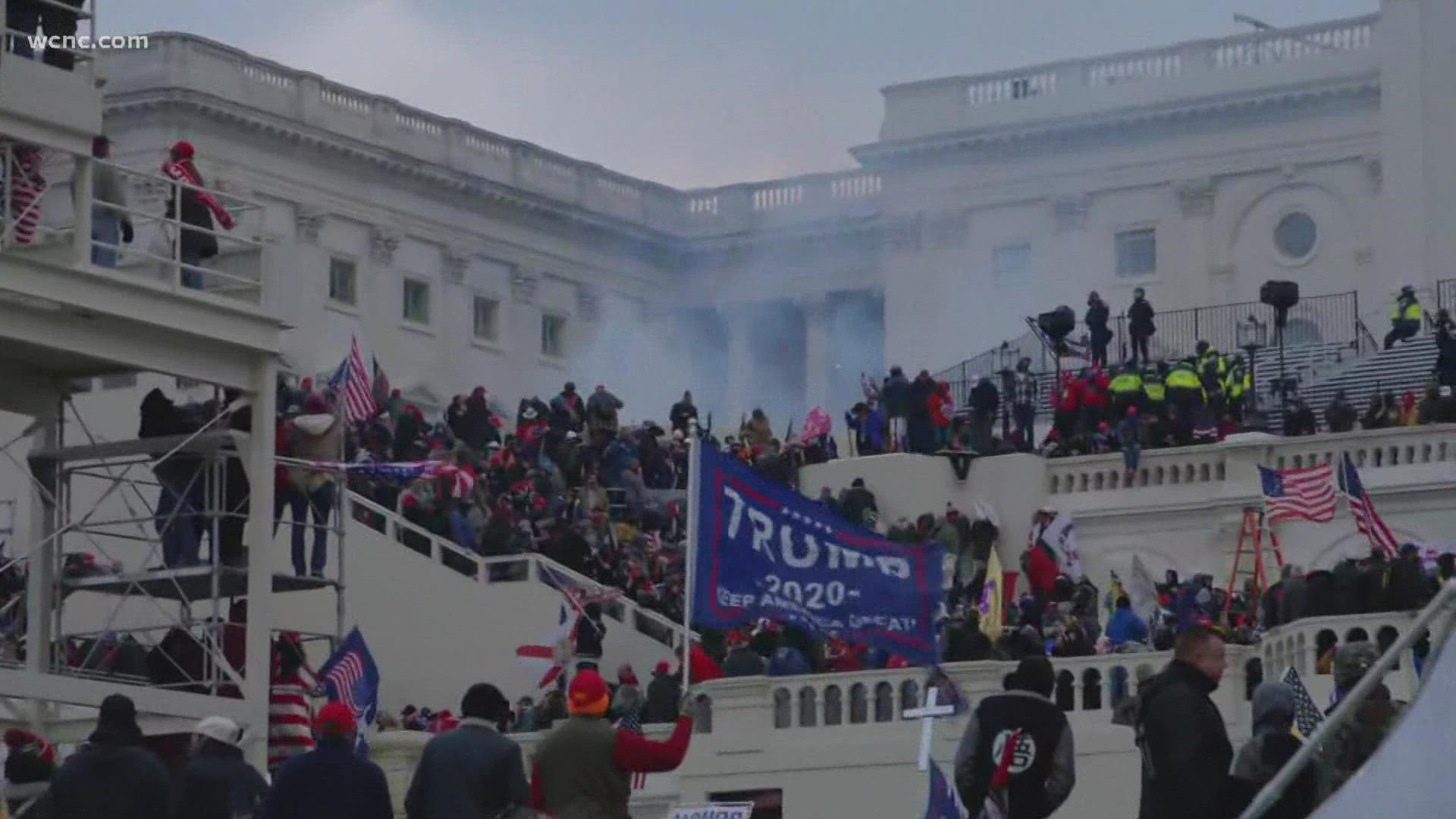
They came from all walks of life. One took his girlfriend to the rally. Many drove the seven or so hours to Washington, D.C. from their homes. Several had no criminal backgrounds.
But all 27 of the North and South Carolina residents so far arrested and charged by the federal government regarding their alleged involvement are still in the legal system, waiting for their futures to unfold.
'Those who are running, they can run for only so long'
In the year since the deadly insurrection at the U.S. Capitol, federal prosecutors have been busy tracking down thousands of leads, reviewing hundreds of hours of video surveillance and combing through pages and pages of texts.
Much of the evidence used against the North and South Carolina residents charged includes videos, text messages, and social media posts they themselves created.
Take Bradley Bennett's case, for example. Bennett is a 52-year-old Charlotte resident.
According to court documents filed by the U.S. Attorney's Office for District of Columbia, an acquaintance of Bennett's provided the FBI with a text message (below) from Bennett on Jan. 6, 2021.

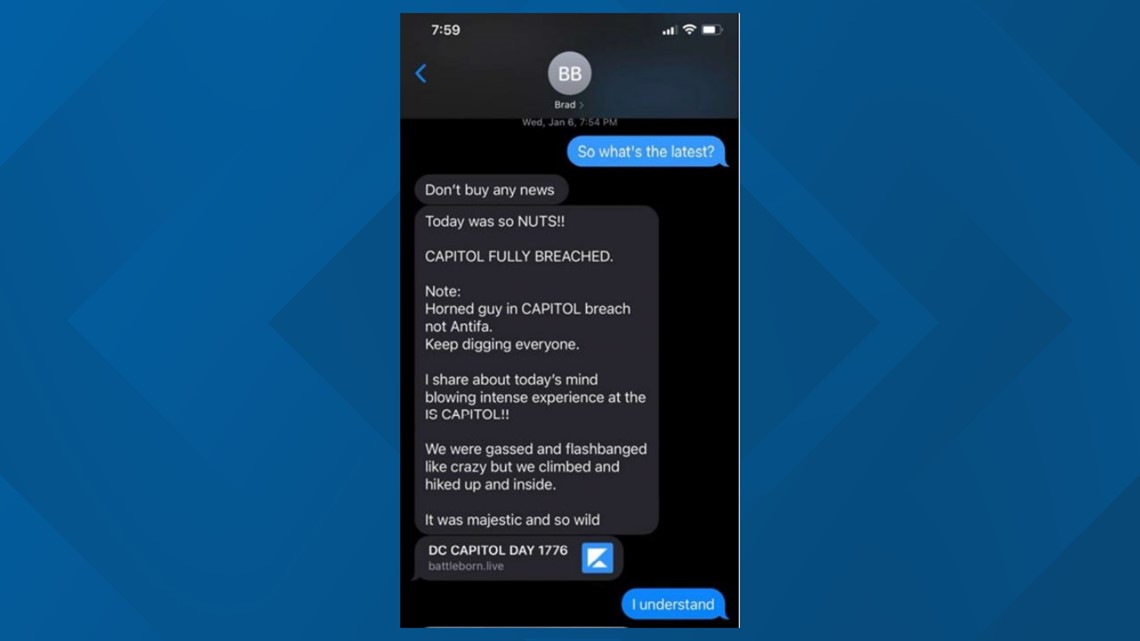
Bennett writes to this individual, "Today was so NUTS! CAPITOL FULLY BREACHED...I share about today's mind blowing intense experience at the IS CAPITOL!! It was majestic and so wild."
There are images of Bennett and his girlfriend, Texas resident Elizabeth Rose Williams, inside the US Capitol on the day of the attack.
The still photo below was captured from a Facebook video on Bennett's page, showing Bennett entering the Capitol, in the Capitol Crypt, and in the gallery of the Senate Chamber.

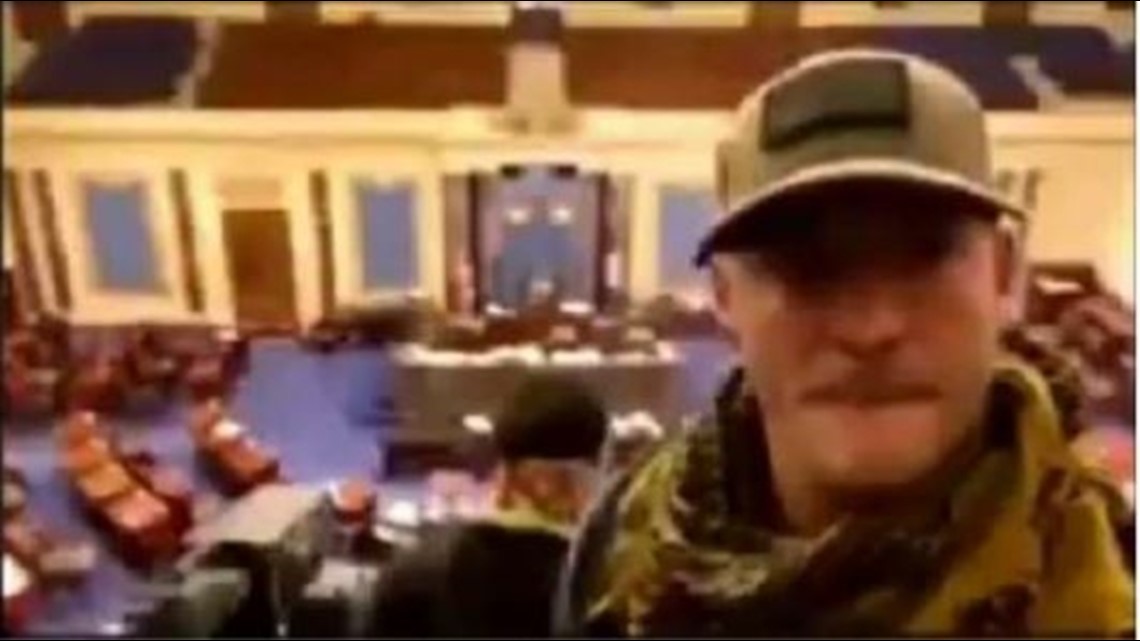
Bennett was arrested and charged in April 2020, almost three months after the attack. He is charged with obstruction of an official proceeding, entering and remaining in a restricted building or grounds, disorderly conduct in a restricted building, entering and remaining in the gallery of Congress, disorderly conduct in a capitol building, and parading, demonstrating, or picketing in a capitol building.
Bennett's case file is very similar to many of the other North and South Carolina residents facing charges for their alleged involvement in the insurrection. Federal prosecutors received tips from family members, friends, and casual acquaintances when the FBI put out a call for help in identifying those involved.
But some of the cases involving these 27 North and South Carolina residents vary.
Some individuals were arrested just days after the attack on the Capitol, yet their cases are moving slowly through the court system. Delays due to the coronavirus pandemic are slowing things down.
Others, like 19-year-old Raleigh resident Aiden Bilyard, were charged in the last two months.
Former FBI agent and federal prosecutor M. Quentin Williams said this disparity in when an event happened and when someone is tracked down is not unusual.
"Everybody will be caught, absolutely," Williams said. "There is no doubt in my mind, that those who are running, they can run for only so long. They're going to be caught."
'For DC, it continued for months and months and months'
Some of those charged in the last year are cooperating with authorities. Catawba County resident James Little originally faced four charges related to his involvement in the riot. He has since reached a plea deal with prosecutors, agreeing to admit he entered the Capitol without the authority to do so.
Little pleaded guilty on Nov. 16, 2021. He could face up to six months in prison and a $5,000 fine.
Williams said it's worth it for those facing charges to cooperate with investigators.
"If you make it easier for prosecutors, they'll make it easier on you... providing information on others will get them in a better position when it comes to sentencing," Williams said.
Williams pointed out that while a majority of those arrested so far are facing simple misdemeanors, those charges could serve another purpose.
"They of course make folks accountable for their role," Williams said. "But they give an opportunity for prosecutors to get those people to give them information... and the object is to get those who conspired to do this."
Jordan Fischer, a reporter with WCNC Charlotte's sister station WUSA, has been tracking Americans across the country who have been charged in the attack. Not every case gets his attention.
"We sort of broke it down into people who assaulted police, conspiracy cases, locals, and then other people who are of interest," Fischer said.
WUSA created a newsletter covering the aftermath of the Capitol riot. Fischer provides updates on cases there, as well as through his Twitter account and through pieces for TV.
"It was not just a one-day thing for DC, it has continued to be a thing," Fischer said. "It happened on January 6. But for DC, it continued for months and months and months. And there was a huge expenditure to the city tp pay massive amounts of overtime, things like that."
Fischer's reporting shows roughly 150 of those arrested across the country in connection to the riot have reached plea deals with the federal government.

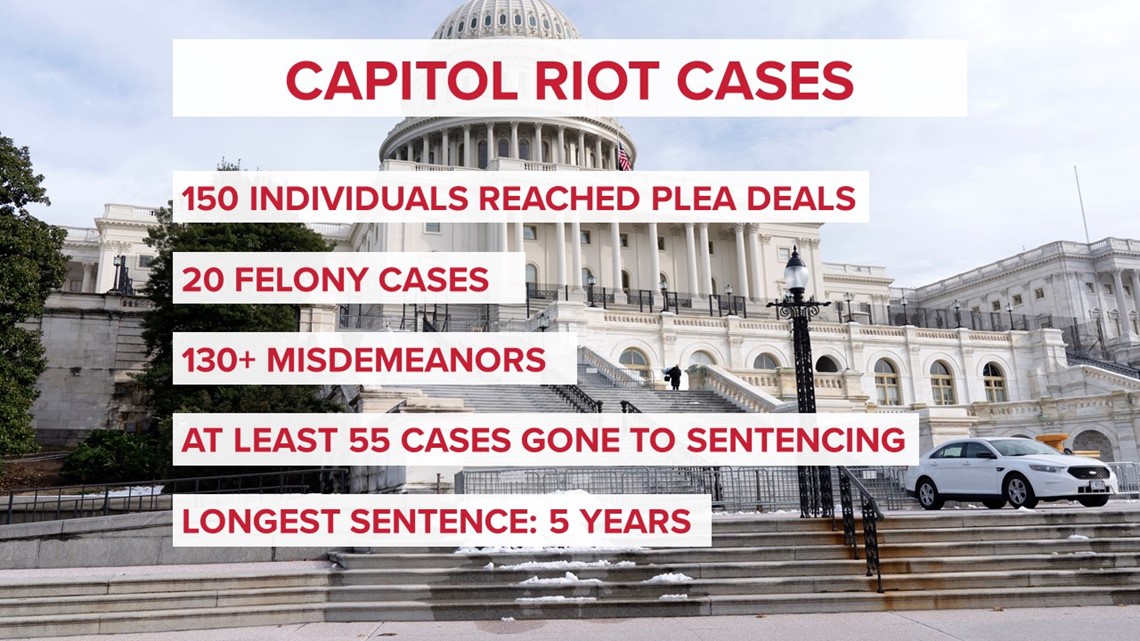
At least 55 people have been sentenced, with the longest sentence, Robert Scott Palmer, being five years in prison. Palmer pleaded guilty to assaulting a police officer with a fire extinguisher and wooden plank.
Fischer said it's been interesting to see the variability of sentences by these federal judges. Some judges sentenced individuals to jail time, regardless if federal prosecutors asked for it.
"I don't think any of the judges on the DC district court have minimized what happened on January 6," Fischer said. "I think all of them have been very explicit that it was a serious thing."
'History will not be kind to this event'
As for the rest of the country taking stock in the near-non-peaceful transfer of power that happened on Jan. 6, some are skeptical.
"Unfortunately, I don't think enough culturally is gonna happen," Scott Huffmon of Winthrop University said. "Personally, I wish the American culture would take it very, very seriously based on my professional understanding of what happened. Now, realistically, no."
Huffmon said the history books will write about Jan. 6, 2021, as an attack on democracy.
"More importantly than just the act itself, there will be just as many chapters written about how this was interpreted, how two sides literally saw the same incident and interpreted it into facts in very different ways," Huffmon said.
"History will not be kind to this event," Huffmon said. "I wish I wasn't living through it."
RELATED: Jan. 6 didn't lower the political temperature — it heralded 'mass radicalization,' experts warn


